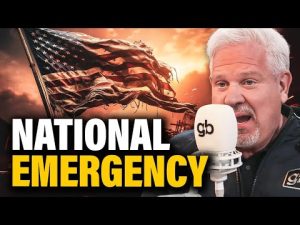In a twist worthy of a Hollywood script, former Ambassador Ric Grenell has recently made headlines for his role in negotiating with the Maduro regime in Venezuela. Landing in Antigua, Grenell’s mission was not only ambitious but crucial, as it led to the release of Joe Sinclair, an Air Force veteran who had been held in a Venezuelan prison since November. Sinclair’s return to freedom is a glimmer of hope for American families who worry about loved ones detained abroad. His release seems to be just the beginning of Grenell’s ongoing efforts to improve relations with Venezuela.
Grenell has had a history of securing the release of Americans from Venezuela, but his recent achievements highlight an impressive leap forward. Following months of discussions, the negotiations have reportedly led to the return of more than 3,000 illegal aliens who were deported back to their home countries. Such progress not only impacts those individuals directly involved but also reflects the bigger picture of U.S. foreign policy and its response to challenges posed by foreign regimes, particularly under President Maduro’s leadership.
One of the intriguing angles to Grenell’s negotiations involves American oil companies operating in the resource-rich nation. As part of his strategy, Grenell, alongside Treasury Secretary Scott Bessent, has successfully extended waivers for these companies for an additional 60 days. This crucial extension allows U.S. businesses a chance to navigate the complex waters of international sanctions while keeping American interests aligned with potential opportunities in Venezuela. It appears Grenell is not simply waving a stick; he’s strategically offering carrots to lure Venezuela back into the fold of international relations.
Let’s pause for a moment to appreciate the tightrope Grenell must walk. Diplomacy often entails balancing acts that can be as precarious as a circus performer on a high wire. By combining the threat of sanctions with the promise of economic engagement, Grenell is shaping an approach that may just be effective in encouraging Venezuela to play ball. This would not only restore some level of normalcy but could potentially foster improved relations long-term between the two nations.
Overall, Grenell’s efforts mark a noteworthy chapter in U.S.-Venezuela relations, and there’s much more to come. As he continues to negotiate and pave the way for more Americans to be released, many are hopeful that the tide is turning in favor of diplomatic solutions instead of hostile tactics. The unfolding drama in Venezuela certainly keeps on giving, and with Grenell leading the charge, the potential for resolution and better relations is more tangible than ever. As more details emerge, one can only wonder what other surprises are lurking just around the corner!







